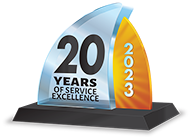DOT Drug Testing Rules: Do Your Employees Know the Details?
In 1991 the United States Congress passed a bill giving the Department of Transportation (DOT) the authority to require virtually anyone who performs safety sensitive duties to be tested for drug and alcohol use. It applies to employees and applicants in mass transit, trucking, railroads, aviation, and pipeline industries. That bill, which became federal law the same year it was passed, is the Omnibus Employee Testing Act of 1991. It is vital that your employees know the DOT drug and alcohol testing rules, which are a result of the act and apply to safety-sensitive employees.
Safety Benefits of a Substance-Free Workplace as a Result of the DOT Drug Testing Rules
The obvious benefit of a drug and alcohol-free transportation workplace is safety, for both the employee and the public. Pilots, railroad engineers, truck drivers, bus drivers, and other safety-sensitive employees are operating equipment that can be dangerous to public safety. Any type of accident can become a major tragedy. The operators of these modes of transportation have to be operating at peak substance-free efficiency.
Other benefits of a substance-free workplace include employee productivity, positive employee morale, and improved health and wellness.
DOT Drug Testing Rules and Requirements
DOT drug and alcohol testing rules are specific and designed to prevent drug and alcohol misuse on the job. Testing is required:
- Prior to hiring an employee
- If the employer has reasonable suspicion that an employee is impaired by drugs or alcohol while on the job
- After certain types of accidents
- Before an employee is allowed to return to work following a testing violation
- At random
The law requires the DOT to mandate how specimens are collected and tested as well as which employees are to be tested. A urine specimen is required for drug testing; alcohol testing requires breath or saliva.
Drug tests are for the following substances:
- Marijuana
- Cocaine
- Opioids
- PCP
- Amphetamines, Methamphetamines, and MDMA
Railroad employees have different tests, as mandated by the Federal Railroad Administration. There are more details available from the Department of Transportation.
Connecting an Employee to a SAP After a Failed Test
If your employee fails a drug and/or alcohol test they must immediately be removed from their safety-sensitive duties and seek the services of a SAP in their area. How does your employee find someone who is DOT and SAP qualified? Locating a SAP on their own can be frustrating, and take time. Connecting with a service agent, such as SAP Referral Services (SRS), can quicken the process.
Get in touch with SRS today and your employees can be scheduled with a SAP in their area typically within 72-business hours.


